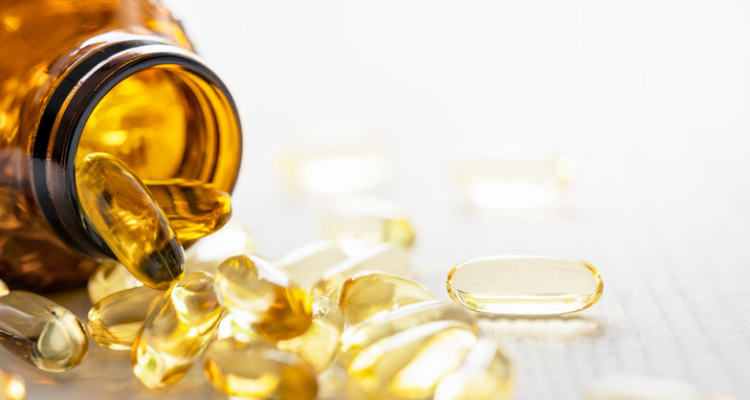
We tend to think of immune health when we’re sick, but taking proactive measures to build a strong immune system is essential to staying healthy all year long.
The immune system is the body’s natural barrier against invaders that can challenge our health. Integrative medicine takes a holistic approach to building and sustaining a strong immune system, including diet, lifestyle, and nutritional supplements.*

how to improve the immune system with nutrition and lifestyle
Whether or not you have signs of compromised immune health, it’s important to take preventative measures to stay healthy all year long. Nutrition and lifestyle lay the groundwork for a strong immune system. Supplements are secondary.
Common immune offenders include refined sugar, white flour, poor gut health, exposure to foods you might be sensitive or allergic to, tobacco, sleep difficulties, and high stress. While you might not be able to improve these factors overnight, slowly changing your diet and lifestyle to address these pieces of the immune puzzle can help maintain health.
Sleep is perhaps the most important factor. Studies show lack of quality sleep significantly impacts immune health.[1] Better sleep quality can be supported with lavender, certain amino acids, melatonin, relaxation techniques, and other lifestyle modifications.* If sleep continues to be an issue, speak with your integrative doctor to create a personalized program for sleep support.
Nutrition also plays a massive role in a robust immune system. While each person’s nutritional needs are unique, some foods that are encouraged for supporting the body's natural defenses include:
- Quality sources of proteins, such as fish, lean red meat, eggs, poultry, nuts, dried beans, peas, and seeds
- Fresh and brightly colored fruits and vegetables
- Cruciferous vegetables like broccoli, cauliflower, kale, cabbage, and Brussels sprouts
- Whole grains
- Mushrooms, particularly the Coriolus and maitake varieties
- Green tea
Immune health also benefits from avoiding or minimizing sugars, processed and packaged foods, deep-fried foods, alcohol, raw or undercooked foods, and high-fat or greasy foods.
Physical activity is also essential for immune health, and the type and amount depend on the person. On average, 30-60 minutes of movement per day boosts circulation, which bolsters the immune system. Outdoor exercise provides the added immune benefit of spending time in nature.[2]
supplements that support immune function
In addition to an immune-boosting diet and lifestyle, certain dietary supplements can be helpful for general immune health and prevention. Speaking with your provider about an individualized plan is always important, but the following supplements are commonly recommended.
Quercetin
Histamine plays a vital role in the immune system’s response to invaders. When mast cells detect stress or danger, they release histamine. This histamine in the blood causes redness and swelling, and the bioflavonoid quercetin can stabilize the cell membranes and help with the response.* Quercetin helps control histamine release and combat common discomforts like a runny nose and itchy eyes.* You can boost its effectiveness by taking it with vitamin C.
liposomal vitamin c
Liposomal liquid supplements are mucoadhesive, as the GI’s mucus layer is lipid-based and aqueous. A liposome can attach itself to this mucus layer and deliver its nutrient more effectively than a molecule by itself. We know that the gut is a hostile environment to bioactives like Vitamin C, melatonin, and DHEA. For example, if you take 1000 mg of vitamin C, your body will only absorb a small fraction of that. Due to its mucoadhesive properties, liposomal encapsulation of vitamin C helps overcome these obstacles and deliver this potent immune-boosting nutrient more fully and rapidly than traditional methods.*
vitamin d3
Vitamin D is an essential fat-soluble vitamin that the body produces when exposed to sunlight. The immune system requires vitamin D for balanced white blood cell function, and low levels are common in cold weather climates. Naturally, getting adequate sun exposure during the winter is challenging, and supplementing with vitamin D3 has been shown to help maintain health, especially in those with lower levels.*[3]
zinc
Another key nutrient for immune health is the mineral zinc.* Low zinc levels can contribute to a heightened inflammatory response, and regularly taking a zinc supplement might be beneficial, particularly during winter months or if the immune system is compromised.*[4]
elderberry
Elderberry in the form of syrups or lozenges may also be helpful if you want to support your immune system.* Participants who took 15 mL of elderberry syrup in a study evaluating the efficacy of elderberry showed markers for improved immune health four days sooner than those given a placebo.*[5]
main takeaways for strong immune health
- Adopt a whole foods diet rich in cruciferous vegetables, brightly colored fruits and vegetables with high antioxidant content, protein, and healthy fats
- Exercise 30-60 minutes per day and get outside as often as possible
- Focus on sufficient, high-quality sleep and stress management
- Speak with your integrative doctor about supplements and inquire about helpful immune-boosters like liposomal vitamin C, vitamin D3, elderberry, quercetin, and zinc*
Boosting immune health for prevention and overall vitality is an important part of maintaining wellbeing. Starting with a handful of minor changes today can make a significant difference in the future.

[1] Besedovsky, L., Lange, T., & Born, J. (2012). Sleep and immune function. Pflugers Archiv : European journal of physiology, 463(1), 121–137. https://doi.org/10.1007/s00424-011-1044-0
[2] Andersen, L., Corazon, S., & Stigsdotter, U. (2021). Nature Exposure and Its Effects on Immune System Functioning: A Systematic Review. International journal of environmental research and public health, 18(4), 1416. https://doi.org/10.3390/ijerph18041416
[3] Aranow C. (2011). Vitamin D and the immune system. Journal of investigative medicine : the official publication of the American Federation for Clinical Research, 59(6), 881–886. https://doi.org/10.2310/JIM.0b013e31821b8755
[4] Shankar AH, Prasad AS. Zinc and immune function: the biological basis of altered resistance to… Am J Clin Nutr. 1998 Aug;68(2 Suppl):447S-463S. DOI: 10.1093/ajcn/68.2.447S. PMID: 9701160.
[5] Wieland, L. S., Piechotta, V., Feinberg, T., Ludeman, E., Hutton, B., Kanji, S., Seely, D., & Garritty, C. (2021). Elderberry for prevention…a systematic review. BMC complementary medicine and therapies, 21(1), 112. https://doi.org/10.1186/s12906-021-03283-5


















